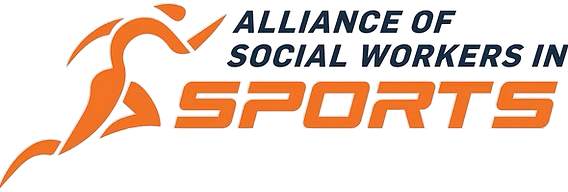Sport Social Work Certificate Program
We are thrilled to share an important update about the Sport Social Work Certificate Program. This is an established and respected continuing education (CE) opportunity developed and offered for years through the Alliance of Social Workers in Sports (ASWIS). This longstanding program has supported countless practitioners, scholars, and advocates dedicated to enhancing the well-being of athletes, families, and sport communities, while providing 30+ CE hours.
Today, we are excited to announce a new chapter. We have a new formal partnership between ASWIS and the University of Kentucky College of Social Work (CoSW). This collaboration brings together a national leader in sport social work education and a top-tier academic institution committed to innovative, accessible, and practice-informed teaching. CoSW also houses the nation’s only DSW Sport Social Work Concentration, the Sport Social Work Research Lab, and the International Institute for Sport and Behavioral Health.
As we work to launch this enhanced certificate program, our next steps are already underway. Together, ASWIS and CoSW will:
- Refine and expand curriculum content to reflect the most current research, policy, and practice in sport social work.
- Strengthen asynchronous learning components to increase flexibility and accessibility for working professionals across the globe.
- Integrate cutting-edge technology and advanced learning management systems to create an engaging, user-centered educational experience.
- Deliver asynchronous, practice-centered courses that translate core concepts into real-world application through case examples, skill demonstrations, and scenario-based learning.
- Ensure the certificate remains grounded in the values that have made it a trusted credential, while also elevating its academic rigor and reach.
We invite you to be part of this exciting evolution. If you are interested in advancing your expertise, or supporting colleagues who wish to do so, now is the perfect time to connect with us.
Please email Amanda Dailey-Weaver (ASWIS Program Coordinator) at admin@aswis.org. This will ensure you receive pertinent updates about the new application process. We are planning on offering the first cohort in this new format in March 2026.
Program Topics
Sport Social Work Immersion:
This section will explore the vulnerabilities and resiliencies of individuals who participate in youth, secondary, collegiate and professional sports as well as the hazards they encounter at the various levels of their sporting career. This course explores athletes as a vulnerable, historically oppressed, and marginalized populations, prior to, during, and/or, after their journey as athletes.
Understanding Diversity and Social Justice in Sports:
This section will explore examples of social justice inside/outside sports and issues of fairness and equity in athletics. Potential social justice topics will include Title IX, equity in coach compensation, adequate compensation for college-athletes, concussion, prevention, awareness, intervention and gender, and athletes’ social movements.
Athlete Behavior in the Social Environment:
This section provides content on the reciprocal relationships between athlete behavior and their social environments. It includes empirically based theories and knowledge that focus on the interactions between and within the athlete population, their families, their communities, athletic teams, athletic organizations, institutions overseeing athletics, and a global audience of sports enthusiasts.
Professional Practice and Assessment Athlete Needs:
This section provides an in-depth examination of the helping process within the context of an ecosystems/developmental framework. The course presents an overview of assessment skills needed to determine the functioning of athletes using a psychodynamic developmental model and descriptive diagnosis, DSM 5. Particular attention is given to the dynamics of development and culture, and to the interrelationship among biological, psychological, and social/cultural systems that impact diagnosis within athletic cultural context.
Treatment of Athlete Needs:
This section provides an overview of possible interventions, triage options, and recommended courses of treatment for athletes. In particular, treatment modalities will focus on the examination of psychodynamic and cognitive theory. The course will also explore critical aspects of the therapeutic relationship between an athlete and their practitioner, which promotes growth and change.
Sport Social Work Policy and Research:
This section outlines the tasks, skills, and values required for social workers to effectively influence athletic policies at the organizational and legislative level. This course aims to introduce the role of sport social workers as “policy practitioners”. This section also focuses on research methods and designs that may be utilized by sport social work practitioners and advocates for evaluating the safety and well-being of athletes of all ages and abilities. Research should enable sport social workers to develop and apply a scientific stance, to acquiring a working knowledge of selected research methods, and to incorporate these elements into the Sport Social Work practice.

